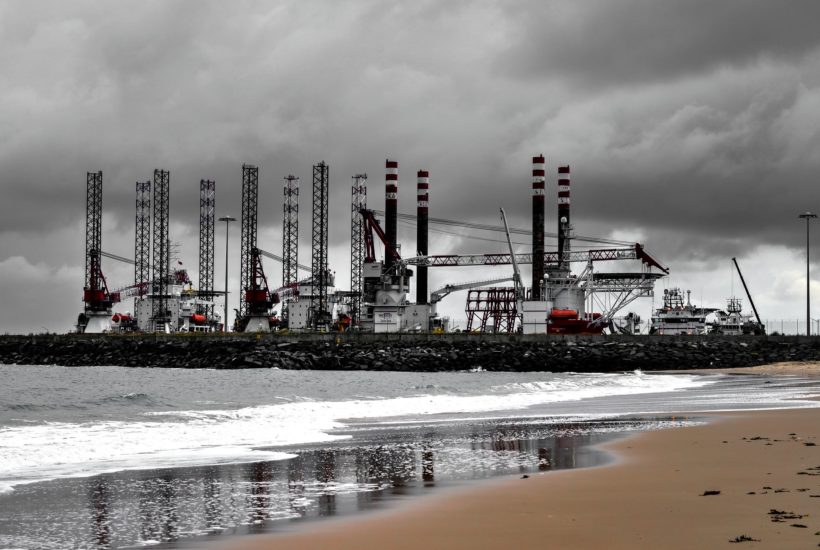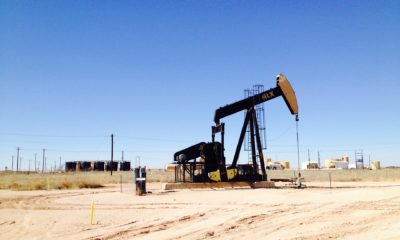Featured
Why partnerships are vital for success in the oil and gas industry in 2021
Externally, companies will need to prepare for unpredictable forces in the oil and gas industry in 2021. These include new pricing models, expanded regulatory requirements, potential pushes for new infrastructure, and an administration with different priorities. Some of these forces are positive and others negative, but both will require robust partnerships to properly manage. Are you equipped for success this year?

The coronavirus pandemic negatively affected nearly every industry, but perhaps none more so than oil and gas. In April 2020, global oil demand dropped by 25%, and prices reached 30-year lows. Though the industry has since rebounded, oil demand is predicted to remain lower than pre-COVID-19 levels this year. And with the Biden administration planning to enact stricter policies on oil and gas companies, 2021 is sure to be similarly challenging to 2020.
Success in the oil and gas industry will depend on building partnerships more than anything else. Strong relationships — between customers, other companies, industry leaders, and more — will help energy companies adapt to the turbulence and disruption that lie ahead.
Confronting the new normal
Internally, companies will need to make tough choices about how to return to work once the pandemic subsides: Who will come back, when, and under what conditions? How will the 50% of office-based workers projected to remain remote through 2022 integrate with the rest of the team? These questions don’t have easy answers, but they do have profound implications for health, safety, and effective operations. Finding the best path forward will be much easier with communication, cooperation, and collaboration between everyone involved.
Externally, companies will need to prepare for unpredictable forces in the oil and gas industry in 2021. These include new pricing models, expanded regulatory requirements, potential pushes for new infrastructure, and an administration with different priorities. Some of these forces are positive and others negative, but both will require robust partnerships to properly manage. Are you equipped for success this year?
Why partnerships matter in oil and gas
Oil and gas, like a lot of industries, tends to put up walls and silos: between teams, departments, customers, third parties, etc. Collaboration exists in the industry, but it’s never been the defining feature. Entities often can be defensive about their resources, rather than embrace opportunities for sharing. That needs to change.
With the oil and gas industry in flux, teams, companies, and the industry as a whole must become dynamic and adaptive. That’s much easier to achieve through collaboration than competition. Joint ventures, for example, often fall apart because friction between the partners overwhelms the value of the project. Those false starts aren’t acceptable in 2021 — not amid a pandemic that’s shuttered many operators and left the survivors strapped for cash.
Partnerships and relationships will be so important this year (and in years to come) because they help shield the participants from risk. Strong collaboration within teams, between teams, and across companies results in more efficient and effective outcomes. Alternatively, lack of collaboration can lead to setbacks and failures that will have outsize consequences in the coming months. If working together wasn’t a priority in the past, it needs to be now.
How to build, manage, and maintain partnerships
Use these strategies to form productive relationships that last for the long term:
1. Offer solutions, not just support
Historically, companies in oil and gas provide a service or sell a product. These are important, but they’re just one component of an end-to-end solution that may involve service, equipment, expertise, and other resources. Position yourself as a solutions provider first — someone who can fix problems regardless of what that involves. Customers seek out these kinds of providers first and return to them over and over. Put differently, solutions providers are partners, while everyone else is just a vendor.
2. Focus on the process
Customers want a solution, but that doesn’t mean they’ll accept it on any terms. Companies hoping to foster partnerships and relationships need to be conscious of the process they use to deliver solutions. If that process is inefficient, inaccessible, or ineffective in any way, it could be alienating potential partners. Processes don’t always develop organically or logically, so it’s always worth reviewing whether they work as intended.
3. Reflect and reevaluate
Never assume things are working perfectly. Instead, take the time to reflect on projects after the fact, including both what worked and what didn’t. Honesty is the most important quality here. It can even help to bring in a third party to get an objective analysis of the customer experience. Constant self-critique helps an oil and gas company quickly root out the issues that compromise collaboration — internally and externally — and it helps to suggest a viable solution. Learn from each experience, whether successful or not, to make the next attempt better.
The oil and gas companies that thrive in 2021 won’t do it alone. They will get help from their partners, just as they will provide help when called on. That raises critical questions: Who will you call on in 2021, and what will you provide in return? Finding the answers could be the most important thing you do this year.
_
(Featured image by fernando butcher CC BY 2.0 via Flickr)
DISCLAIMER: This article was written by a third party contributor and does not reflect the opinion of Born2Invest, its management, staff or its associates. Please review our disclaimer for more information.
This article may include forward-looking statements. These forward-looking statements generally are identified by the words “believe,” “project,” “estimate,” “become,” “plan,” “will,” and similar expressions. These forward-looking statements involve known and unknown risks as well as uncertainties, including those discussed in the following cautionary statements and elsewhere in this article and on this site. Although the Company may believe that its expectations are based on reasonable assumptions, the actual results that the Company may achieve may differ materially from any forward-looking statements, which reflect the opinions of the management of the Company only as of the date hereof. Additionally, please make sure to read these important disclosures.

-

 Business2 weeks ago
Business2 weeks agoDow Jones Near Record Highs Amid Bullish Momentum and Bearish Long-Term Fears
-

 Africa2 days ago
Africa2 days agoCameroon’s Government Payment Delays Exceed 200 Days, Straining Businesses and Public Finances
-

 Crowdfunding1 week ago
Crowdfunding1 week agoThe Youth Program at Enzian Shooting Club Is Expanding Thanks to Crowdfunding
-

 Crypto5 days ago
Crypto5 days agoTariff Turmoil Sends Bitcoin and Ethereum Lower as Crypto Markets Face Mounting Pressure

























